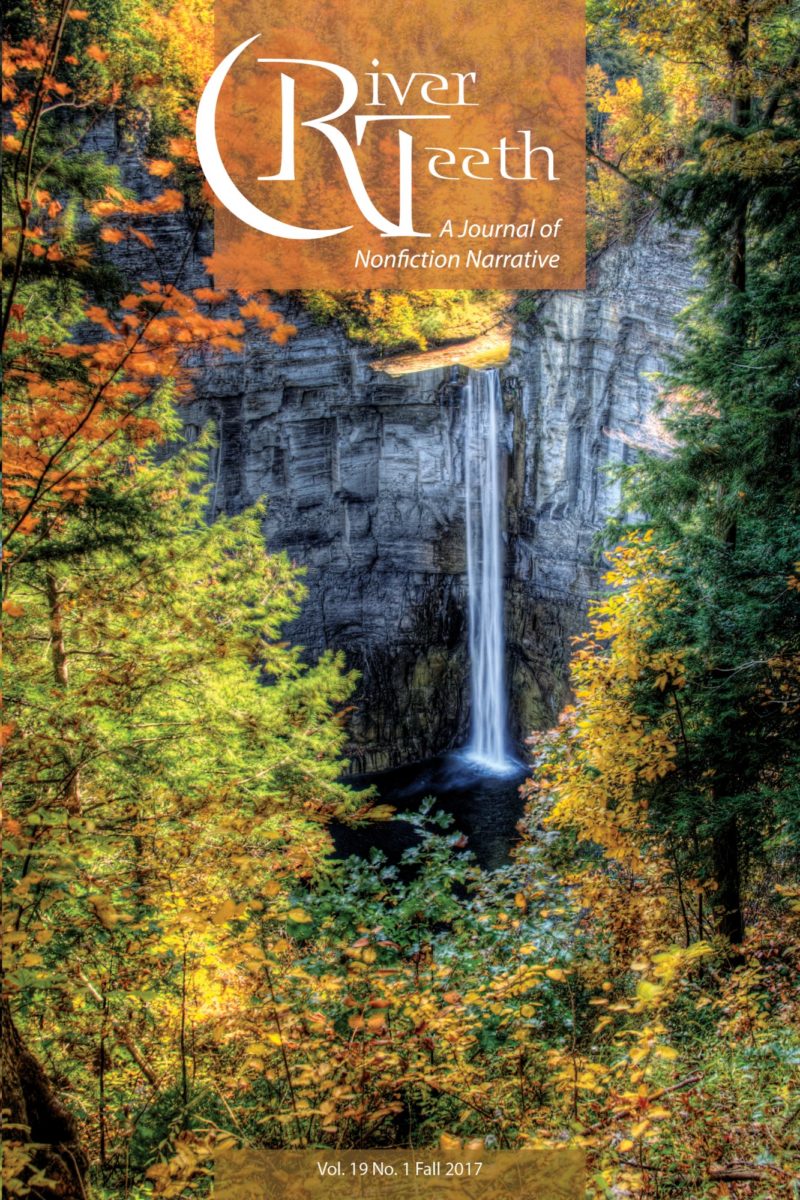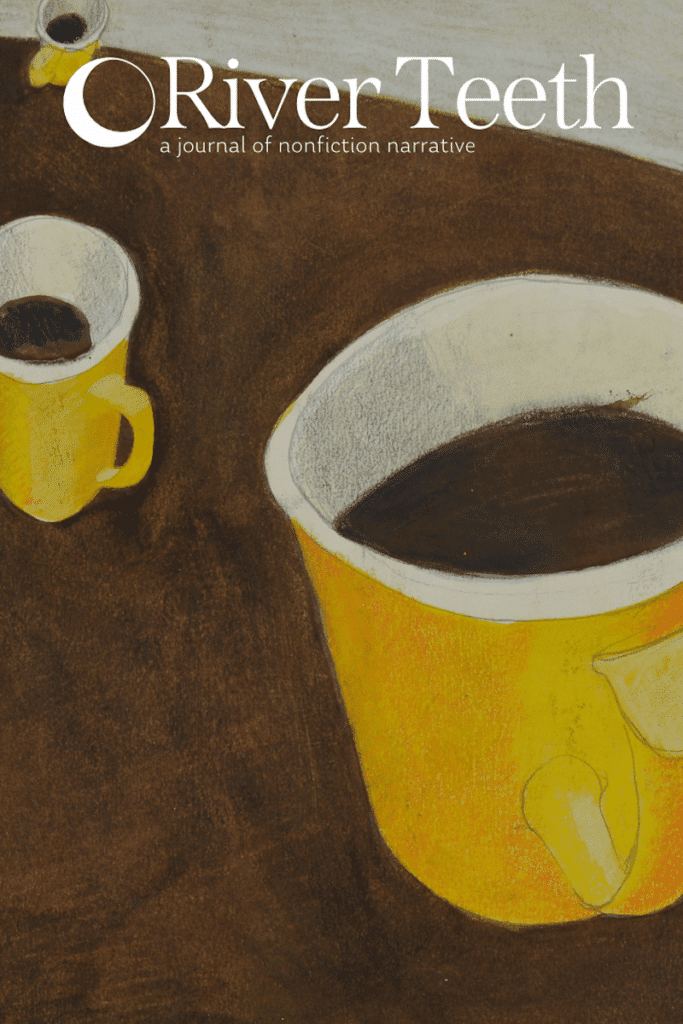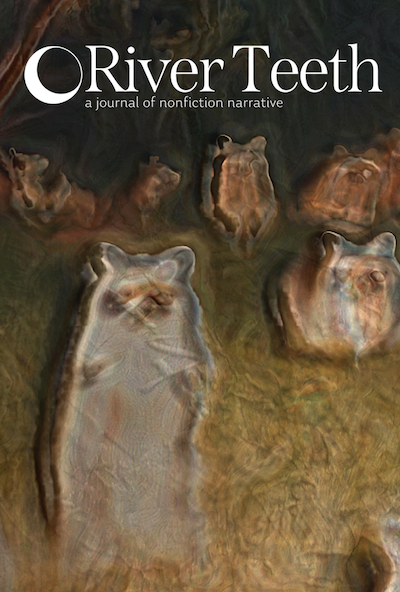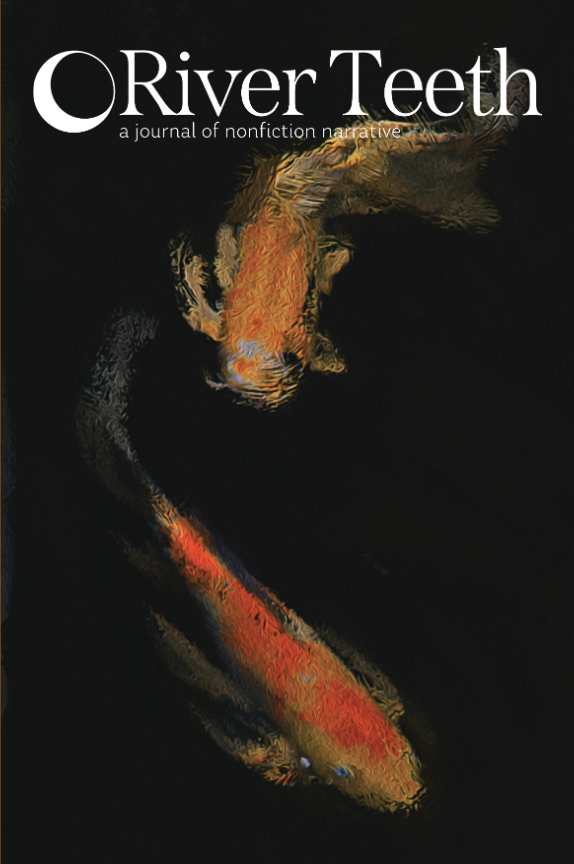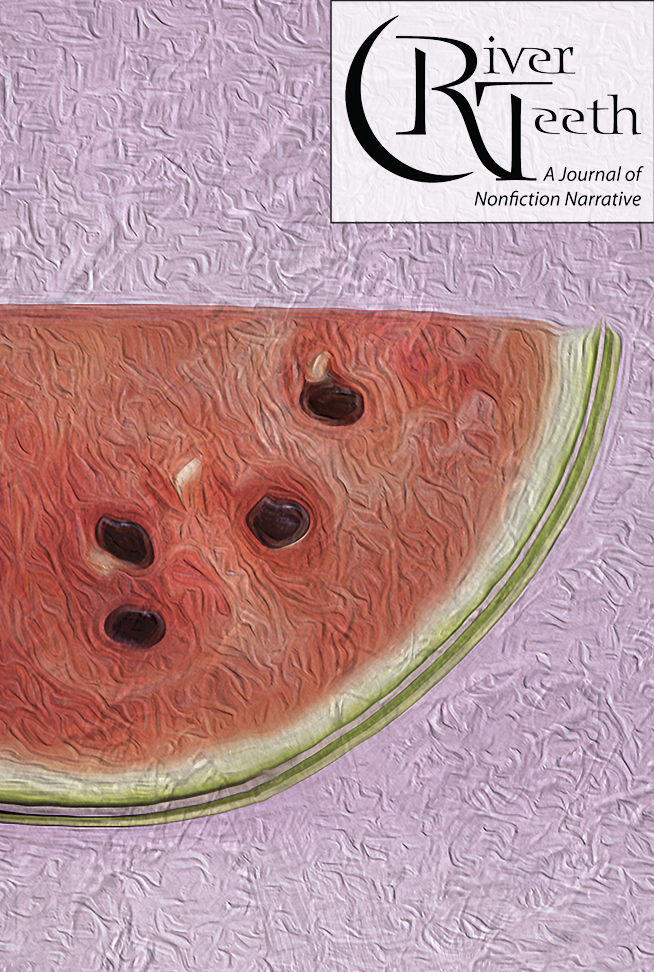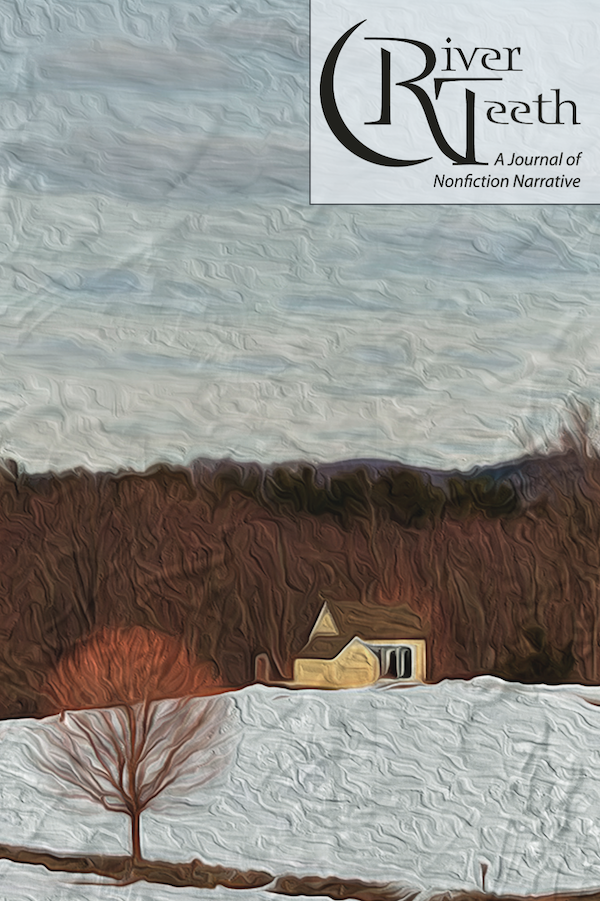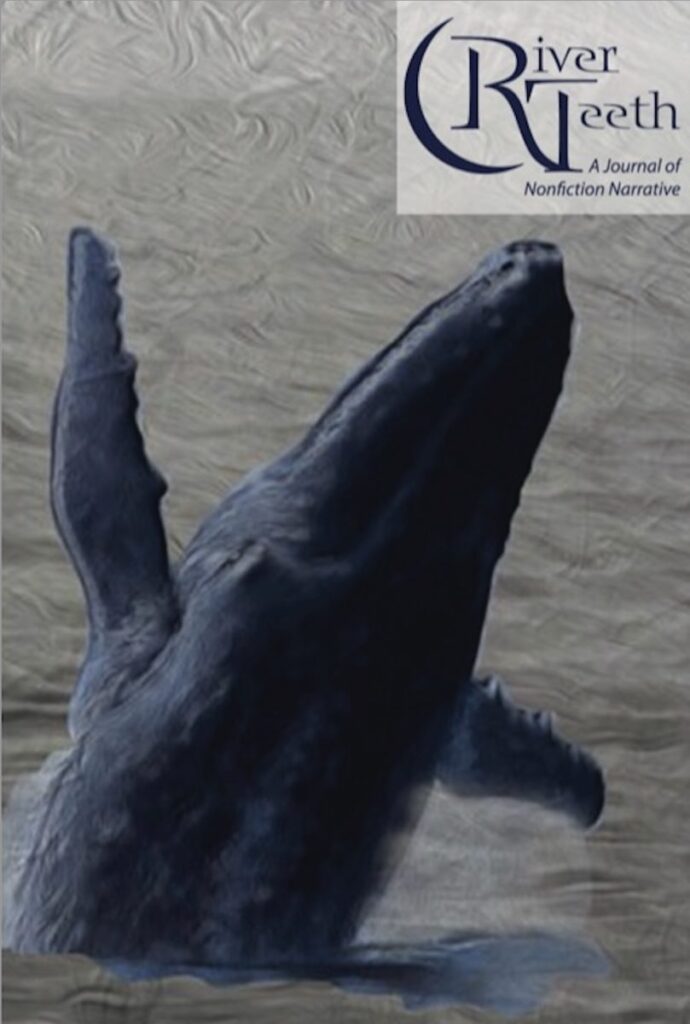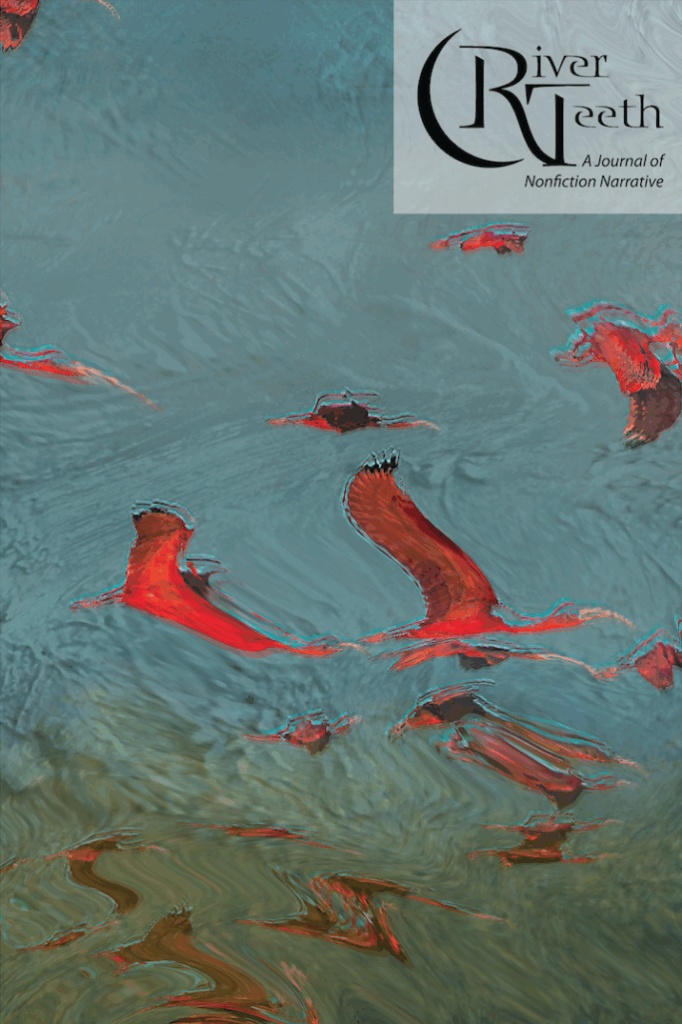By Joe Mackall
Remembering Brian Doyle and Nancy Mairs
In Austin in 2006, while at the annual conference of the Association of Writers and Writing Programs, I stepped away from the River Teeth table for a time, and when I came back a young woman near our display said to me: “Some lady in a wheelchair was just here looking for you.” That “lady in a wheelchair” happened to be the indomitable Nancy Mairs. I spotted Nancy and her husband George a few minutes later and had a great talk, most of which, I’m sure, came from my mouth, words thanking her for her writing, her gifts to River Teeth, her brave prose, her effervescent spirit. That was the first and last time I’d ever be with her in person. She died in December of last year at the age of seventy-three. I’d read Nancy for years, and she’s one of the very first people Dan Lehman and I wanted for our editorial board. Not only did she agree to sit on the board of River Teeth, but she also gave us an essay for our inaugural issue titled “Sex and the Gimpy Girl.” And there you have Nancy Mairs. I’ll always think of her as brave. Not because of how she lived and wrote with multiple sclerosis for forty years, but because as a nonfiction writer she hid nothing. She denied us nothing. Her readers learned about her illness, her depression, her Catholic faith, her doubts, her marriage, her body. She understood that the writing life is no game.
Here for instance is Nancy on marriage, the body, and sex, from her memoir Waist-High in the World:
I’ve heard it said that a sexual relationship cannot be sustained when one partner provides routine care to the disabled other. Perhaps so, if the relationship depends heavily on glamour, as I suppose a good many do. After thirty-five years of acquaintance, and with two catastrophic illnesses, if we demanded enchantment, we’d be sorely let down. Our bodies hold few mysteries for each other. Once you’ve helped your wife change her wet pants, or watched the surgeon pop a colony of E. coli from the healing wound in your husband’s belly, you have seen behind all the veils. I don’t know what the sexual bond between us relies on, but it’s not sorcery. The routine of caregiving doesn’t seem to diminish our attraction; George’s impotence, which has a physiological rather than psychological basis, doesn’t usually discourage either of us from lovemaking. And because we have grown so familiar with each other’s physical realities, we love each other more unabashedly and inventively as time goes on.
If you read Nancy Mairs, you too “see behind all the veils.” She was not a woman or a writer to shy away from reality. I was about to write that her fearlessness made her great, but really, her fearlessness made her Nancy Mairs. We admired her greatly, and we’ll miss her terribly.
And it’s in deep grief that I write about the death of our friend Brian Doyle in May at age sixty. Too damn young. We were fortunate to publish Brian twice, and we would have published him in every single issue. Nobody wrote like Brian Doyle. Nobody. His prose was always beautiful; sometimes it was downright giddy. His words fluttered madly along the page; his prose took flight. The man loved the liturgy of language and the mysteries of the world. I don’t know of another writer who brought joy to the page as consistently or as urgently or as passionately as Brian Doyle. He pushed me to grasp at grace and joy and wonder; he dared me to become reacquainted with awe. He made me want to believe. Here’s one of my favorite Brian Doyle quotes:
I also know, with all my hoary muddled heart, that we are carved of immense confusing holiness; that the whole point for us is grace under duress; and that you either take a flying leap at nonsensical illogical unreasonable ideas like marriage and marathons and democracy and divinity, or you huddle behind the wall. I believe that the coolest things there are cannot be measured, calibrated, calculated, gauged, weighed, or understood except sometimes by having a child patiently explain it to you . . . In short I believe in believing, which doesn’t make sense, which gives me hope.
Every time I read this, I think: Brian, we’re really “carved from immense confusing holiness”? Holiness? We’re to live with “grace under duress”? With grace? “Believe in believing”? How do I do that? One thing I did was to read Brian Doyle as often as I could. He liked to say that stories were prayers. I’ve come close to true prayer by reading Brian Doyle.
He was not only a wonderful and joyous writer, but he was a flat-out fine man. He was, if you’ll allow me, a sweet person. He’d do the little things nobody seems to do anymore. Although we hadn’t met at the time, he sent me a card—in the mail!—telling me how much he admired a recent issue of River Teeth. I’m sure he reached out to many. I finally met him when he was the featured speaker at our low-residency MFA program. It was obvious after five minutes how much he loved his wife, this life, his children, his church, this world. He cried openly in front of a crowded auditorium of cynical writers when spinning a story about his beloved wife Mary. Brian Doyle’s passion would not be contained.
Here he goes again:
. . . the nonsensical, illogical, unreasonable, insupportable, unprovable conviction that one time long ago a thin young mysterious eloquent Jewish guy was crucified and died and then he came alive again in a way that no one understood then and no one understands now. If that happened, then there is a way for us to live amid the sea of death; if that didn’t happen we are only compost, awake for a time and then put to work as seething soil.
It’s impossible for me to believe as I write this that Brian Doyle is nothing more now than “seething soil.” He gave us a way to live and a way to write. He didn’t ignore the horror of our times; he had faith in the face of it. When cynicism has good reason to saturate our new century, Brian Doyle wrote, somehow, above it all, or he was able to transcend it by some kind of magic or will or faith. I’m not sure myself. I only learned about Brian’s death yesterday. It’s too much with me. I know this: The world is less without him. Although I seethe, I choose to believe in his believing.
This issue is dedicated to the life and work of Nancy Mairs and Brian Doyle.
Thanks for reading.
JM
Read Contributors’ Notes for Issue 19.1 >

